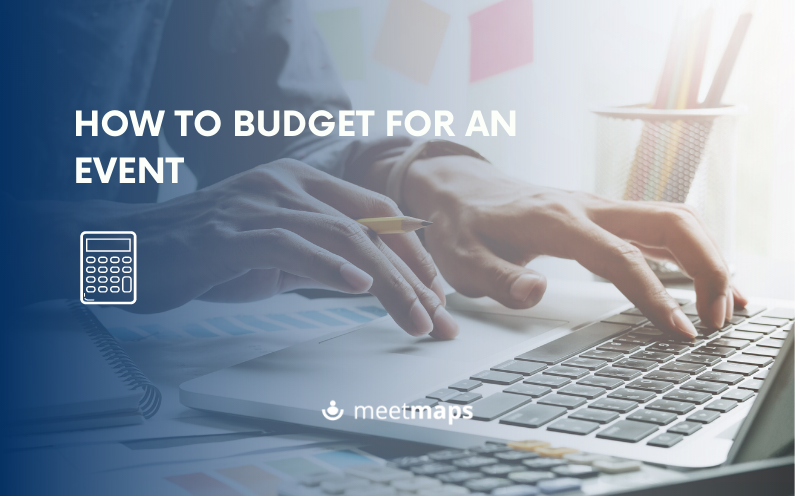Organizing an event is not easy, but the chances of success are greater if you plan well from the beginning. Among the factors that you cannot lose sight of is the budget, because for it to be really useful it has to be well done. We want to help you with this issue and, therefore, we are going to explain how to make a budget for an event.
Índice de contenidos
.
The importance of budget in event organization
The event budget is a fundamental factor that, as an organizer, will limit you during the entire preparation phase. You must always adjust to the price that the client is going to pay for the celebration.
Thanks to it you can have a more realistic and clear vision of the economic resources you will have available. Without it you cannot make a correct expense management and you will not know if you have enough funds to pay for all the necessary services for the development of the event.
Nor should you lose sight of when the funds will be available. It is usual that the payment is made in several parts, so you will have to negotiate with your suppliers to adjust the payments to the moments in which you have already received part of the money agreed by the organization of the event.
.
How to make a budget for an event

Now that we are really aware of the importance of budgeting, let’s see in detail how to make a budget.
On some occasions we have talked about the phases of an event and we have seen that a basic element to be able to make the planning is to know the objective that is pursued with the celebration that is going to be organized. Well, knowing the objective of the event is also fundamental to be able to budget. Being aware of the purpose will allow you to know which services will be essential and which ones you can do without.
On that basis, you can start to work out the costs and possible income:
.
Determining common expenses
These are the types of expenses that are present to a greater or lesser extent in all types of events and which cannot be dispensed with, such as food or space rental.
On average, food and beverage expenses account for 36% of common expenses, followed in order of importance by audiovisual expenses and the labor needed to set everything up.
But there are also other ordinary or common expenses that cannot be overlooked, such as travel expenses for the organization’s staff, promotional activities, the cost of speakers or entertainment staff, venue or farm rental and accommodation costs.
.
Differentiate between fixed and variable costs
You must be clear from the beginning that there are costs that may vary depending on the number of people attending the event and others that do not.
.
Fixed Costs
Fixed costs are those that we are going to have to cover regardless of the number of attendees that come to the event, that is:
- Pre-event production and personnel expenses.
- Venue where the event will be held, which will be one of the most important costs.
- Event management software such as Meetmaps
- Diffusion, promotion of the event, publicity and press conference.
- Technical equipment, sound, projection, decoration, photography and video.
- Translators if necessary.
- Registration and accreditation system.
.
Variable Costs
Variable costs are determined by the number of attendees or guests, including:
- Accreditation material, credentials, programs, brochures, gifts or souvenirs or diplomas.
- Catering service, coffee breaks, lunches, dinners.
- Security and cleaning personnel
With this data you can quickly know the average cost of the event per attendee.
.
Contingencies

The budget of an event should always be flexible and with a certain margin to take care of unforeseen events that will surely arise. It is best to calculate between 10% and 15% of the total cost of the event in order to have a reserve fund to be able to draw on if necessary.
.
Sources of income
In the case of public events, sporting events, or different types of corporate events, it is very common that there are sponsors. It is difficult to know in principle the income that will be received from sponsorship, but it is important to keep in mind that there will be a source of money that can be used to cover expenses.
.
Tips to adjust the event budget
The cost of organizing an event is usually high, but there are certain actions that you as an organizer can take to try to reduce the cost so that the budgets you present are more attractive to your potential clients.
- Try to book the venue, airline tickets and accommodation as far in advance as possible. Look for different combinations of flight plus accommodation to get the cheapest deal.
- Look for different sponsors who may be interested in having a presence at the event.
- Negotiate with suppliers to get the best possible price for their services.
- Get involved with suppliers and help them find ways to offer you their services at a lower price.
- Choose local suppliers.
- Reuse material from one event for another.
- Never stop expanding your list of trusted suppliers.
.
Presentation of the budget
Once the document is ready, it is time to present it to the client or sponsors. The name of the company or professional issuing the quotation, the details of the person requesting the quotation and the date of delivery of the quotation must be included.
We must not lose sight of the fact that the different services required to organize an event may vary in price over time, hence the importance of setting a validity date for the estimate. This also helps the client to make his decision more quickly, as it generates a certain sense of urgency.
It is advisable that each of the budget items be well itemized, so that the client or the sponsors can see exactly what they are going to pay and in what concept. In fact, if it is an event that has already been held previously, a statistic of the evolution of costs from one year to another can be presented.
.
Tools for event budgeting
The bigger and more complex the event is, the more complex the budget will be, so it is important that as an organizer you have tools to help you manage this important preparation phase.
Excel is the most common tool to calculate a budget for an event, although there are templates to generate a budget that you can duplicate and adjust event after event.
We can have budgets that adapt to the event or events that adapt to the budget, but the fundamental thing is that we know at all times how much money is available and how we are going to distribute it among the different services and professionals we are going to have to count on.
.
Optimize your time

As a professional event planner, you’re not short on time, so you need a management tool that can go everywhere with you and that you can use from anywhere.
Luckily, software comes to our aid in the form of an easy-to-use app. This is the case with Meetmaps, a comprehensive solution for organizing your event from scratch.
If the budget is well thought out, everyone is able to stick to it and there aren’t too many unforeseen events, there’s no reason why the event you’ve organized can’t be a resounding success.
.
